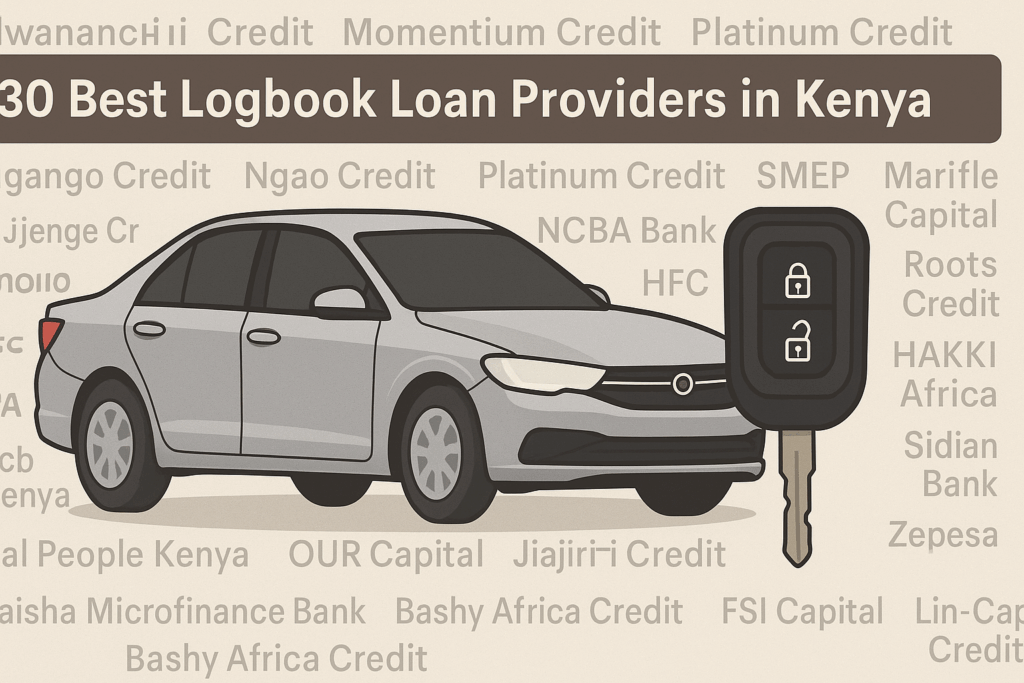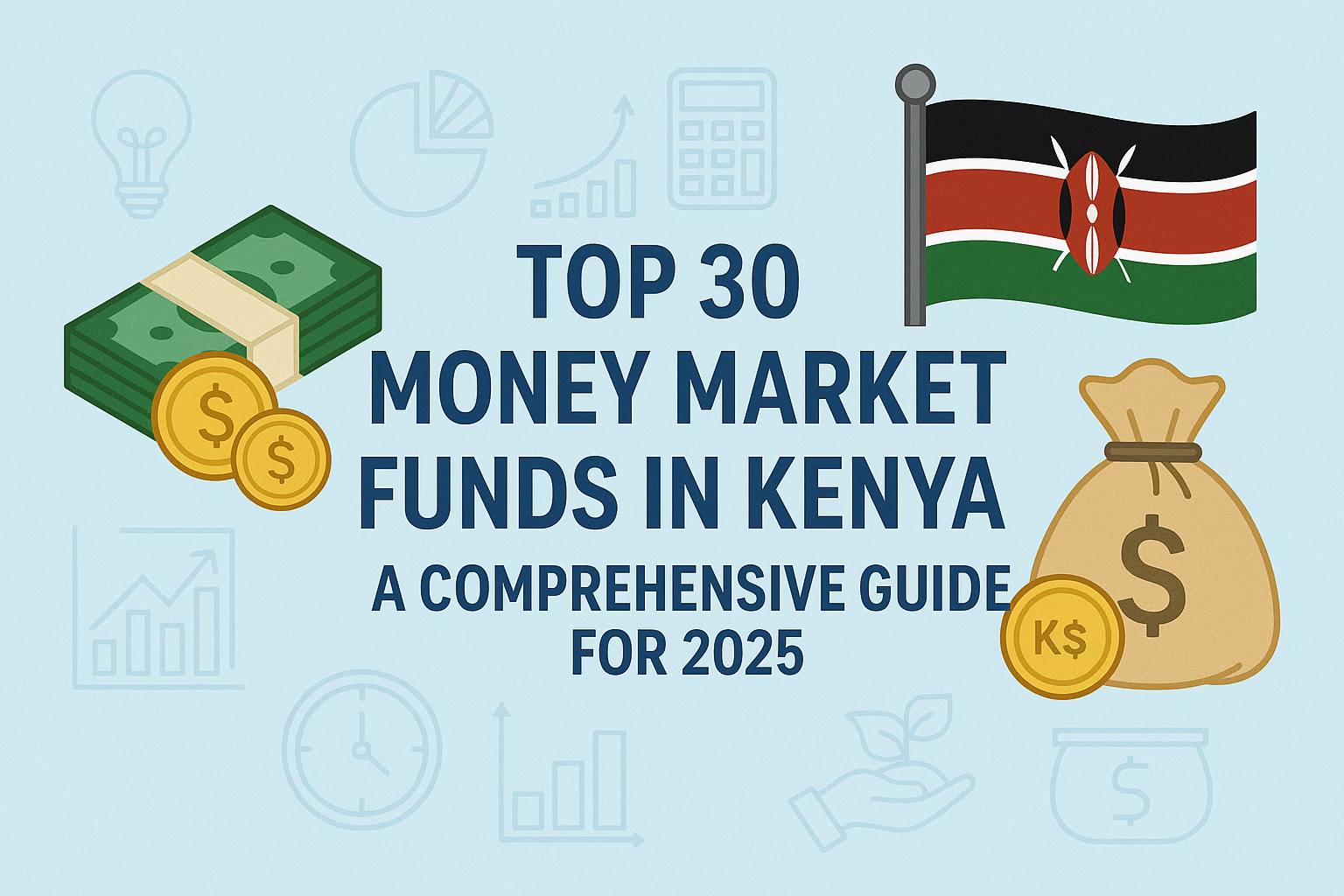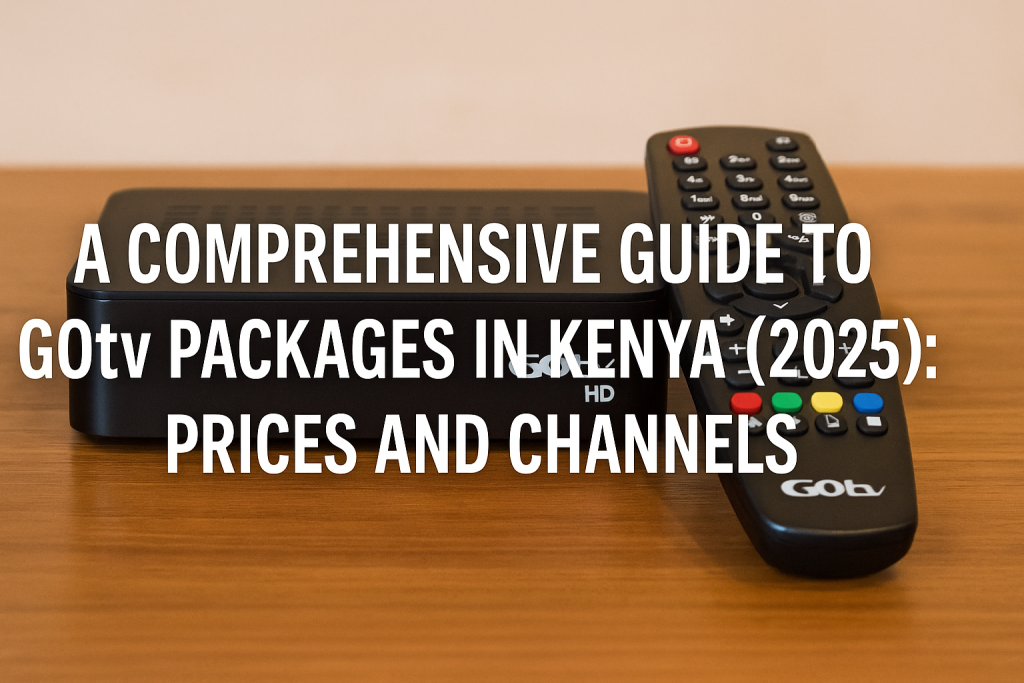Logbook loans let you borrow against your car while you keep driving it. Done right, they’re a fast, flexible way to unlock working capital or bridge a short-term cash gap. Done casually, they can get expensive—fast. This guide ranks 30 providers operating in Kenya and highlights the practical details most borrowers care about: typical limits and LTVs, indicative rates and fees, documents, processing speed, and the standout features or caveats to check before you sign.
How we picked
We evaluated each lender on:
- Transparency: published product details, typical fees, and clear documentation lists.
- Speed: real-world turnaround and same-day/next-day disbursement ability.
- Depth: buy-off/refinance options, top-ups, and flexible tenors.
- Reach: national presence or credible digital onboarding.
- Market reputation: consistency of offering and clarity in customer communications.
(Very) quick safety brief
A logbook loan is secured by your vehicle. If you default, repossession is a real risk. Always compare the total monthly cost (interest + fees + excise duty on fees + valuation + tracker + legal + RTGS + insurance re-assignment). Ask for an early settlement schedule (how much you owe if you clear in month X), confirm vehicle age limits, and verify LTV (often 50–80% of assessed value). Where possible, collect two written quotes and use them to negotiate.
30 providers—what they offer, how fast they move, and what to verify
For each provider you’ll see: Loan limits / LTV / terms, Rate & fees (if known), Docs, Turnaround, and Notable features / caveats. Where a lender doesn’t publicly state a number, use these notes as a checklist for your call.
1) Mwananchi Credit
- Limits/LTV/Terms: Frequently quoted high caps, up to ~80% of car value; flexible tenors common in this segment.
- Rate & fees: Marketed as competitive; verify flat vs. reducing and all fees.
- Docs: Original logbook, ID, KRA PIN, bank/M-Pesa statements, comprehensive insurance.
- Turnaround: Same-day possible if documents are ready.
- Notable: Strong national presence and large-ticket comfort.
2) Ngao Credit
- Limits/LTV/Terms: Often advertises up to a few million shillings; typical tenors up to ~24 months.
- Rate & fees: Request a full fee card; confirm tracker/valuation/legal.
- Docs: Standard KYC, logbook, statements, insurance.
- Turnaround: Frequently within hours when paperwork is complete.
- Notable: Widely known; straightforward process.
3) Jijenge Credit
- Limits/LTV/Terms: Typical range from ~50,000 to ~10,000,000 depending on vehicle value.
- Rate & fees: Ask for the flat monthly rate and all non-interest charges.
- Docs: ID, KRA PIN, bank and M-Pesa statements, insurance, original logbook.
- Turnaround: Often within 24 hours.
- Notable: Inclusive on vehicle types; flexible structures.
4) Momentum Credit
- Limits/LTV/Terms: Up to low-to-mid millions; tenors often up to 24 months.
- Rate & fees: Request a written rate sheet; check for early settlement penalties.
- Docs: Standard set.
- Turnaround: Fast responses; digital-leaning onboarding.
- Notable: Strong customer communication and app experience.
5) Platinum Credit
- Limits/LTV/Terms: Mid-to-high ticket comfort; check tenor options.
- Rate & fees: Ask for all fees (processing, valuation, legal) and if excise is applied to each fee line.
- Docs: Standard; often asks for post-dated cheques.
- Turnaround: Frequently within a day.
- Notable: One of the best-known brands in this category.
6) MOGO
- Limits/LTV/Terms: Roughly 150k–3.25M; up to ~80% LTV; tenors up to 30–36 months in many cases.
- Rate & fees: Positions around transparent pricing; verify reducing vs flat and whether upfront charges are waived.
- Docs: Logbook in your name, ID, KRA, statements, comprehensive insurance.
- Turnaround: Same-day approvals common.
- Notable: Buy-off/refinance options and occasional best-price matching campaigns.
7) Springboard Capital
- Limits/LTV/Terms: Small-to-mid tickets; clear loan calculator.
- Rate & fees: Typically publishes a flat monthly rate and standard fees; this transparency helps you benchmark.
- Docs: ID, KRA, 6-month bank and M-Pesa statements, original logbook.
- Turnaround: As little as same-day in many cases.
- Notable: Known for stating fees upfront—useful when comparing offers.
8) NCBA Bank
- Limits/LTV/Terms: Minimums often ~100k; bank-grade rules on vehicle age (e.g., not older than a set limit at end of term).
- Rate & fees: Bank pricing; ask about reducing-balance options and arrangement fees.
- Docs: Standard KYC, logbook, income proof, insurance.
- Turnaround: Bank processes may take longer but can be competitive on cost.
- Notable: Good if you want a bank’s structure and oversight.
9) HF Group (HFC)
- Limits/LTV/Terms: Minimums often ~100k; tenors can stretch to ~48 months in some structures.
- Rate & fees: Bank pricing; confirm effective cost including all fees.
- Docs: Standard KYC and security perfection requirements.
- Turnaround: Typically quick once valuation and credit checks clear.
- Notable: Longer tenors can lower monthly burden.
10) Premier Credit
- Limits/LTV/Terms: Up to ~3M commonly advertised; tenors vary by risk profile.
- Rate & fees: Request a full table by tenor and confirm early settlement terms.
- Docs: Standard set; may request post-dated cheques.
- Turnaround: Often within 24 hours.
- Notable: Regulated MFI; good mid-market option.
11) FinCredit
- Limits/LTV/Terms: Up to ~2M; LTV often up to ~60%; tenors up to ~24 months.
- Rate & fees: Flat monthly rates commonly quoted; some messaging references no early-settlement fee—verify this in writing.
- Docs: ID, KRA, 6-month bank + 12-month M-Pesa statements, insurance, logbook.
- Turnaround: Often ~12 hours if files are complete.
- Notable: Clear checklist and quick processing.
12) Autochek (Kenya)
- Limits/LTV/Terms: ~100k–3M; typical tenors 3–24 months.
- Rate & fees: Request formal offer; confirm total cost of credit.
- Docs: Standard; digital application flow.
- Turnaround: Fast pre-offers; same/next-day possible.
- Notable: Digital comparison feel if you prefer online workflows.
13) Juhudi Kilimo
- Limits/LTV/Terms: Tailored to micro and agri-SME realities; tenors vary.
- Rate & fees: Ask for a complete breakdown by sector and vehicle type.
- Docs: Standard set plus business evidence where applicable.
- Turnaround: Often within 24–48 hours.
- Notable: Useful for rural and agri-leaning borrowers.
14) Together As One Microfinance
- Limits/LTV/Terms: Commonly ~100k–3M or up to ~70% of value.
- Rate & fees: Benchmark against peers; confirm all charges.
- Docs: Standard set.
–Turnaround: Can move quickly for well-documented cases. - Notable: Offers buy-off in some cases—handy for refinancing.
15) Rafiki Microfinance Bank
- Limits/LTV/Terms: SME-friendly ranges; tenors typically up to ~24 months.
- Rate & fees: Ask for full fee card plus settlement grid.
- Docs: Standard; business docs if applicable.
- Turnaround: Often same/next-day after valuation.
- Notable: DTM with strong SME positioning.
16) SMEP Microfinance Bank
- Limits/LTV/Terms: Logbook loan sits among SMEP’s key offerings.
- Rate & fees: Verify flat vs reducing; ask about tracker and legal costs.
- Docs: Standard KYC, statements, insurance.
- Turnaround: Typically 24–48 hours.
- Notable: Consider if you already bank here—relationship can speed things up.
17) Marble Capital
- Limits/LTV/Terms: Flexible within SME ranges.
- Rate & fees: Seeks to be competitive; request written schedule.
- Docs: Standard set.
- Turnaround: Often same-day to 24 hours.
- Notable: Publishes educational content on true cost—use their framework to audit any offer.
18) Roots Credit
- Limits/LTV/Terms: Often up to ~60% LTV; amounts sized to SMEs.
- Rate & fees: Confirm processing, tracker, valuation.
- Docs: Standard.
- Turnaround: Same-day possible with complete file.
- Notable: Business-friendly with practical ranges.
19) HAKKI Africa
- Limits/LTV/Terms: Frequently cites up to ~70% LTV; city-center quick-turn focus.
- Rate & fees: Pushes “no hidden costs”—verify the full fee sheet anyway.
- Docs: Standard; smooth digital intake.
- Turnaround: Strong “under an hour” messaging in core service areas.
- Notable: Test a small amount first if you want to validate speed claims.
20) Sidian Bank
- Limits/LTV/Terms: Willing to secure against logbooks in SME structures.
- Rate & fees: Bank pricing; negotiate based on relationship strength.
- Docs: Standard, with business evidence for SME loans.
- Turnaround: Bank timelines; can be efficient once credit clears.
- Notable: A bank option for those preferring formal oversight.
21) Real People Kenya
- Limits/LTV/Terms: Asset-finance specialist; comfortable with logbook security.
- Rate & fees: Standard secured-loan fees; confirm early settlement.
- Docs: Logbook, ID, PIN, statements, insurance.
- Turnaround: Often within 24 hours.
- Notable: Long-standing financier in this niche.
22) OUR Capital
- Limits/LTV/Terms: Up to ~50% LTV; tenors up to ~24 months; quick approvals.
- Rate & fees: Flat monthly rates commonly quoted in this bracket.
- Docs: Standard set; ask about cheques.
- Turnaround: Sometimes within six hours.
- Notable: Clear positioning around speed.
23) Jiajiri Credit
- Limits/LTV/Terms: Small-to-mid ticket; tenors vary.
- Rate & fees: Request schedule; confirm hidden costs.
- Docs: Standard; can initiate via digital channels.
- Turnaround: Often same-day to next-day.
- Notable: Mobile-first application vibe.
24) Pesi Pesa Capital
- Limits/LTV/Terms: Boutique lender; flexible for short-term needs.
- Rate & fees: Confirm flat vs reducing and all extras.
- Docs: Standard.
- Turnaround: Positions for quick cash; often same-day.
- Notable: Handy as a third quote to pressure-test better-known brands.
25) BIMAS Kenya
- Limits/LTV/Terms: Typically ~100k–1M; LTV often 50–70%; stated 48-hour targets are common.
- Rate & fees: Ask for full fee card and settlement rules.
- Docs: Standard plus any business documents.
- Turnaround: Up to 48 hours typical.
- Notable: MFI with footprint outside big cities.
26) Zepesa
- Limits/LTV/Terms: Often ~50k–2.5M; 6–24 months common.
- Rate & fees: Confirm total cost and penalties, if any.
- Docs: Standard; digital-friendly intake.
- Turnaround: Fast for clean files.
- Notable: Good for borrowers who prefer newer digital interfaces.
27) Maisha Microfinance Bank
- Limits/LTV/Terms: Accepts logbooks as collateral for secured business loans; tenors often 1–24 months.
- Rate & fees: Bank-regulated MFB pricing; negotiate.
- Docs: Standard KYC; business proof if applicable.
- Turnaround: Efficient once due diligence is done.
- Notable: Consider if you like bank-style documentation and controls.
28) Bashy Africa Credit
- Limits/LTV/Terms: Focus on competitive pricing within small-to-mid tickets.
- Rate & fees: Verify schedule; look for any fee-reduction promotions.
- Docs: Standard.
- Turnaround: Same/next-day typical.
- Notable: Uses education content to compare peers—helpful when negotiating.
29) FSI Capital
- Limits/LTV/Terms: Standard secured-loan structures.
- Rate & fees: Ask for fee card and amortization sample.
- Docs: Standard.
- Turnaround: Often within 24 hours.
- Notable: Clear product explainer—good for first-timers.
30) Lin-Cap Credit
- Limits/LTV/Terms: Up to roughly 70% LTV is common messaging; tenor varies.
- Rate & fees: Confirm early-settlement rules and all fees.
- Docs: Standard; post-dated cheques may be required.
- Turnaround: Same-day possible with full pack.
- Notable: Explains co-ownership of the logbook during the loan period clearly.
What to compare (the smart-shopper checklist)
- Total monthly cost, not just the headline rate
Many lenders quote a flat monthly rate (for example, 5%–7% flat). Two loans with the same “rate” can cost very different amounts after you add application, processing, tracker, valuation, legal, RTGS, credit-life insurance, and the 20% excise duty on fees. Ask for a single figure that includes everything. - LTV and maximum amount
Expect 50–80% of assessed value, depending on your vehicle, its age, marketability, and your bank/M-Pesa history. Some lenders are comfortable with higher tickets; if you need more, cast a wider net (include one bank, two MFIs, and one digital-leaning provider). - Tenor flexibility
Most MFIs offer 6–24 months. Some bank options stretch to ~36–48 months, which lowers the monthly burden but may increase total interest paid. Always align tenor with how quickly the borrowed cash will pay you back. - Turnaround and documentation
True same-day disbursement requires a complete file: original logbook in your name, ID, KRA PIN, 3–12 months bank statements, 6–12 months M-Pesa statements, comprehensive insurance with lender as loss payee, and post-dated cheques. Have these ready to move faster and to negotiate fee waivers. - Vehicle age rules
Banks and some MFIs limit vehicle age (for example, the car may not be older than a set number of years at the end of the loan). Confirm early to avoid surprises. - Refinancing (buy-off) and top-ups
If you’re stuck on a pricey logbook loan, ask about buy-off. The new lender pays the old one, transfers the charge, and may extend tenor or grant a top-up to ease monthly pressure. Get the current lender’s full settlement figure in writing before you sign a new agreement.
Practical negotiation tips
- Collect two written quotes before you commit. Politely share the better one with your preferred lender; many will match or beat it.
- Target fees first: even a modest reduction in processing, valuation, or legal fees can meaningfully lower your first-month outlay.
- Bring your own insurance quotes and ask if you can assign an existing comprehensive policy to the lender to avoid inflated premiums.
- Mind your statements for 90 days: minimize bounced cheques, overdrawn patterns, and suspicious inflows—it helps pricing and speed.
- Insist on an early-settlement schedule: if your cash flow improves, you’ll know exactly what it costs to exit in month 3, 6, or 9.
Typical document checklist (most lenders)
- National ID and KRA PIN
- Original motor vehicle logbook in your name
- Comprehensive insurance (with lender as loss payee during loan)
- Bank statements (3–12 months) and M-Pesa statements (6–12 months)
- Proof of income or business cash flow (as applicable)
- Post-dated cheques covering the installment period
- Valuation report or consent to valuation and tracker installation (if required)
Who should you call first?
- If you want leverage through variety: Shortlist one bank (NCBA or HF for longer tenor), two leading MFIs (Mwananchi, Ngao, Platinum, Premier, or FinCredit), and one digital-leaning option (MOGO or Autochek).
- If you need a refinance/buy-off: Look at providers explicitly comfortable with buy-off and longer tenors—MOGO, Premier, and Springboard are often competitive.
- If speed is everything: Try HAKKI, Momentum, and an established MFI such as Mwananchi or FinCredit—then pick the fastest that also gives a fair full-cost quote.
- If you’re outside major cities or agri-tilted: Add Juhudi Kilimo, BIMAS, and an MFB (Rafiki, SMEP, Maisha) to your shortlist.
Bottom line
Kenya’s logbook-loan market is competitive, and that’s good news—you can negotiate. Get at least two written offers that show every fee, check LTV, verify vehicle age rules, and request an early-settlement schedule before you commit. If you already have a pricey loan, a buy-off can reduce your monthly burden; just make sure the new lender’s total cost is clearly lower. Finally, match your tenor to the cash-flow reality of why you’re borrowing—short-term needs usually shouldn’t be financed over very long periods.
FAQs About Logbook Loans in Kenya
1. What exactly is a logbook loan?
A logbook loan is a type of secured loan where you use your car’s logbook (proof of ownership) as collateral. You still drive the vehicle while repaying, but the lender places a charge on the logbook until the loan is cleared. If you default, the lender can repossess the car.
2. How much can I borrow with a logbook loan?
Most providers in Kenya lend between 50% and 80% of the car’s market value. The actual amount depends on your vehicle’s condition, age, valuation, and your repayment ability. Some lenders cap loans at KSh 1–3 million, while others like Mwananchi Credit or MOGO may go as high as KSh 10–25 million for high-value vehicles.
3. How long does it take to get the money?
If you have all documents ready—original logbook, ID, KRA PIN, bank or M-Pesa statements, and comprehensive insurance—some lenders disburse the same day, even within hours. Others may take 24–48 hours depending on valuation and internal checks.
4. What documents are required?
Common requirements include: national ID, KRA PIN, original logbook in your name, six to twelve months of bank and/or M-Pesa statements, proof of income, comprehensive insurance, and post-dated cheques. Some lenders may also ask for valuation and tracker installation.
5. What are the risks of logbook loans?
The main risk is repossession if you default. Interest rates can also be high—often quoted as flat monthly rates (4–7%), which add up quickly. Hidden costs such as processing fees, valuation, trackers, and legal charges can increase the total cost.
6. Can I clear my logbook loan early?
Yes, but policies differ. Some lenders charge early settlement penalties, while others, like certain MFIs, may allow early repayment with minimal or no extra costs. Always request a written settlement schedule before signing.
7. Are logbook loans suitable for everyone?
Not necessarily. They are best for short-term cash flow needs where you can realistically repay within months. They can be costly for long-term borrowing or if your income is unstable.



